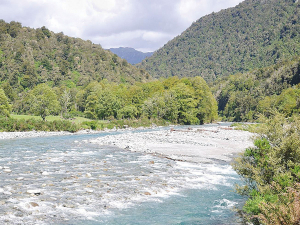Preparing for new freshwater plans
OPINION: With Freshwater Farm Plan (FWFP) regulations imminent, growers need practical, funded support now – not just more paperwork.
 The Government announced recently that it will consult further with farmers on freshwater farm plans.
The Government announced recently that it will consult further with farmers on freshwater farm plans.
OPINION: Farmers should be relieved that the Government is consulting on the changes it has made on the freshwater farm plans.
They have after all admitted they or their officials made some stupid mistakes around the issue of stock exclusion and the original slope maps, which would have seen beef farmers just about fencing streams up to the snowline on their farms.
To be fair, the changes that the Government has made at east show that common sense is starting to come to the fore.
But in a world where there is general distrust been farmers and government, the question remains how this will all play out. For example, will the ‘greenies’ cry foul that the changes are too soft on farmers and will the Government hold the line or take more logical advice from the rural community?
It is evident from what DairyNZ and Beef+Lamb NZ are saying publicly that they are concerned farmers are not getting credit for the good work being done on farm.
DairyNZ wants to see the framework acknowledge work already done by farmers and ensure it doesn’t add time pressures on-farm or complications within regional plans.
DairyNZ strategy and investment leader Dr David Burger notes that dairy farmers are committed to improving water quality. A lot of work is already underway on farms, including 3,400 existing Farm Environment Plans.
“But doubling up on work and compounding that with short timeframes will put too much pressure on farmers. Recognising existing planning is crucial because farmers are already overwhelmed with too many regulations, coming in too hard and fast,” Burger warns.
There are many journalists in the so-called ‘lamestream’ media who simply don’t get or don’t want to acknowledge this either, judging by some of the grossly inaccurate opinion pieces some of them write.
But what has not been highlighted is the fact that the consultation period is during the busy weeks of July to early September.
Have the Wellington-based policy wonks never heard of calving and lambing? Do they know that spring is the busiest time of the year for farmers where 14 hour days are the norm? This timing of the consultation period seriously compromises farmers’ ability to engage, and again shows how disconnected Wellington is from rural New Zealand.
Arguably there is never a good time for consultation, but picking the busiest time of the year to engage with farmers displays either ignorance or, worse, bad faith.
Former Fonterra executive Alex Turnbull has been appointed CEO to lead all five Yili Oceania Business Division companies in New Zealand.
Fonterra executive René Dedoncker is leaving the co-operative later this year to lead Australian agribusiness Elders.
Alliance Group and the Southland Stags rugby team have joined forces in a partnership that will see the the meat co-operative's farmgate brand feature on players' team kits and replica jerseys.
Fonterra's plan to expand its organic programme to the South Island is being well received by farmers, the co-op says.
Voting has started for the renewal of DairyNZ's milksolids levy.
The most successful catchment groups in NZ are those that have 'a source to sea' approach.
OPINION: A dairy version of fantasy football has been launched.
OPINION: In recent weeks beaches in Auckland, Wellington and Christchurch have been unsafe to swim in because of recent heavy…